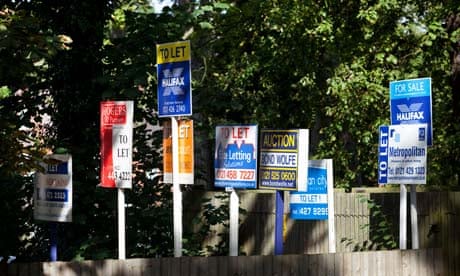The City regulator has shut down the market in schemes which purport to help struggling homeowners, by buying their properties and renting them back to them so they can continue living there.
The Financial Services Authority (FSA) acted to stop the sale and rent back market after it found that most schemes were either "unaffordable or unsuitable and never should have been sold".
Also called "sale and leaseback", the schemes allowed homeowners to sell their home to a company or individual but then lease it back and remain in the property as a tenant, usually on an assured shorthold tenancy lasting six to 12 months – after which they could lose their right to live in the property.
Sale and rent back companies typically targeted struggling homeowners who would stump up the cost of a valuation – usually at least £500 – only to find the price being offered for their home falls far short of the market value.
The Council of Mortgage Lenders issued a warning about the sector in October 2007. However the FSA did not introduce full regulation until June 30 2010, which said companies were prohibited from using high-pressure sales techniques, had to introduce a 14-day cooling-off period, and had to ensure customers had security of tenure for a minimum of five years.
The FSA said a recent review of all 22 regulated firms resulted in it referring one firm to its enforcement division, while others have either stopped taking on new business or cancelled their permissions. "Effectively, this means the entire SRB market is temporarily shut," it said.
The FSA said it had been tipped off by a lender alleging that one firm was committing fraud by arranging transactions as buy-to-let mortgages, with the rogue firm purchasing properties at below market value before inflating the purchase price to defraud the lender.
It also found that firms did not correctly assess appropriateness and affordability, and customers were not given enough time to consider their agreement, which often contained incorrect information and did not meet the FSA's requirements for tenancy agreements. It said sales processes were inadequate and did not allow firms to gather enough information to assess whether schemes were appropriate, and promotions also breached FSA rules.
Nausicaa Delfas, the FSA's head of mortgage and general insurance supervision, said: "Sale and rent back is often the last resort for struggling homeowners, so we expected to see firms treating their customers much better than this report suggests.
"The resulting temporary closure of this market could have been avoided if sale and rent back firms had taken the time to fully understand their regulatory responsibilities and customers' needs. It seems most were more focussed on their own commercial success rather than the welfare of the customers, with one firm even resorting to fraud."
Consumer rights group Which? conducted its own research into the market in February 2011 and found that advice to SRB customers was "woefully inadequate".
Its chief executive, Peter Vicary-Smith, welcomed the FSA's announcement: "We now want to see redress for those consumers who have been given poor advice by SRB companies, and for this to happen quickly."
The FSA will now focus on working with firms conducting past business reviews to ensure any affected customers are treated fairly. It said if customers with existing agreements had concerns about their agreement they should in the first instance contact their provider, or seek professional advice.
The sale and rent back victims
The Observer warned about the sector in 2006 and in 2009 highlighted the plight of victims such as Jean Turner and her husband, who sold their Norwich home to a sale and rent back company after falling three months into arrears on their mortgage. Although they only owed £1,500 they had been taken to court by their lender and faced repossession.
A company called Home Assured agreed to buy their home and paid off the outstanding mortgage and arrears. The Turners then paid £500 a month in rent to stay in their home – the same amount they had been paying for their mortgage, but had no tenancy agreement or rent book. The firm then sold her home to another owner but she received a court summons when the new owner failed to keep up with the mortgage payments – then the new owner tried to raise the rent from £500 to £650.

Comments (…)
Sign in or create your Guardian account to join the discussion